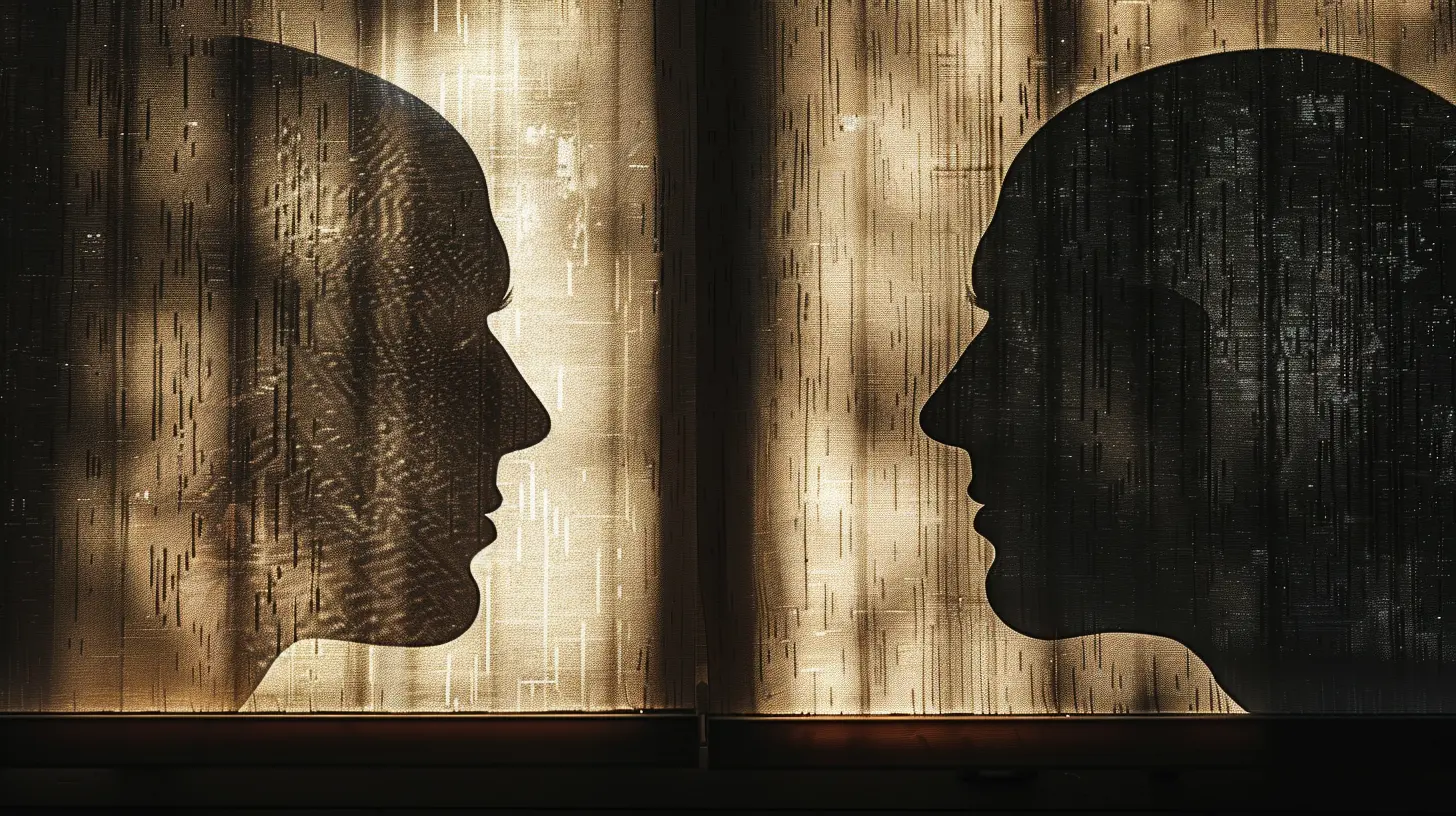The Primacy Effect: How First Impressions Shape Long-Term Judgments
18 July 2025
Have you ever met someone and just felt like you knew them within the first few minutes? Maybe they struck you as friendly, or perhaps they came across as cold or distant. Whatever the case, your initial judgments likely stuck around, influencing how you see them even after you've spent more time together. This isn't just a quirk of human nature—it's something psychologists call the Primacy Effect.
In this article, we're going to dive into the fascinating world of first impressions, specifically the Primacy Effect. We'll explore why it happens, how it affects your judgments, and what it says about human psychology. By the end, you'll have a better understanding of not just the people you meet—but maybe even yourself.

What Is the Primacy Effect?
Alright, let's start with the basics. The Primacy Effect refers to the psychological phenomenon where the first piece of information we encounter has the most significant influence on our perceptions and judgments. In other words, first impressions are powerful.For instance, when you meet someone new, the impressions you form during the first few minutes of interaction are likely to shape how you feel about them long-term. Even if you gain more information that contradicts your initial impression, those first thoughts can linger and affect your final judgment.
The Science Behind It
The Primacy Effect was first documented by psychologist Solomon Asch back in the 1940s. In a famous experiment, Asch presented participants with two lists of traits about a hypothetical person. Both lists contained the same traits, but in reverse order. For instance:- List A: Intelligent, Industrious, Impulsive, Critical, Stubborn, Envious
- List B: Envious, Stubborn, Critical, Impulsive, Industrious, Intelligent
Even though both lists described the same characteristics, participants rated the person on List A more positively than the one on List B—just because the favorable traits appeared first. This experiment clearly demonstrated how our brains prioritize the information we encounter first.
But why does this happen? Well, our brains are wired to make sense of the world as quickly as possible. When we meet someone or encounter new information, the brain tries to form a coherent "story" using whatever it gets first. Once that story is in place, later information tends to be filtered through the lens of the initial impression.
Now that we know what the Primacy Effect is, let's explore its implications.

How First Impressions Work
If you've ever been on a first date, a job interview, or met new colleagues, you know that first impressions are kind of a big deal. But how exactly do they work?The Importance of First Impressions
First impressions are crucial because, well, they're first! From an evolutionary standpoint, our ancestors relied on snap judgments to avoid danger and make quick decisions in unfamiliar environments. Imagine being on the savannah and encountering a stranger—you didn't have time to get to know them; you had to decide quickly if they were friend or foe.While most of us aren't facing life-or-death situations every day, our brains are still wired to make quick judgments. We form these initial impressions in as little as 7 seconds. Sometimes, it’s even faster! These judgments are based on a combination of facial expressions, body language, tone of voice, and even context like the setting or what mood you're in.
The Halo Effect and Horn Effect
Once a first impression is made, it can trigger what's known as the Halo Effect or Horn Effect. If the first impression is positive, the Halo Effect kicks in, where we tend to see everything about that person in a positive light. Think of it like wearing rose-colored glasses—everything they do seems sparkling and good.On the flip side, if the first impression is negative, the Horn Effect happens, and we tend to perceive that person in a darker light. Even neutral or positive actions might be interpreted more negatively because of the initial judgment.
Both effects act as filters that shape how we interpret a person's future behavior, reinforcing the power of the Primacy Effect.

Why Do First Impressions Stick?
It's puzzling, right? You'd think that after spending more time with someone, you'd be able to change your mind about them. And sure, sometimes that happens. But more often than not, first impressions stick around. Here are a few psychological reasons why:1. Confirmation Bias
Once we have an initial impression, we tend to look for evidence that supports it—a cognitive bias known as confirmation bias. If you meet someone and instantly think, "They're arrogant," you'll be on the lookout for behaviors that reinforce that belief, even if they're subtle or out of context.On the flip side, you might ignore or downplay evidence that contradicts your initial impression, like if that "arrogant" person does something thoughtful or humble.
2. Cognitive Load
Changing your first impression of someone requires mental effort. Our brains are always looking for shortcuts (after all, they're busy doing a million things at once). If your initial judgment seems to "fit" and doesn't cause any significant problems, why go through the effort of revising it?3. Anchoring
This is a cognitive bias where we rely too heavily on the first piece of information we get—like an anchor dragging us down. Once your mind is anchored to that first impression, it takes a lot of effort to pull yourself free and shift your perspective.4. Emotional Weight
First impressions often come with a strong emotional charge. Whether it's anxiety, excitement, or curiosity, those initial moments are usually filled with emotional intensity, which makes the impression more memorable. And we know that emotionally charged memories tend to stick around!
Can You Change a First Impression?
Now that we've established how powerful first impressions are, you might be wondering: Can they be changed? The short answer is yes—but it’s not easy.Changing a first impression requires consistent evidence over time that contradicts the original belief. Say you met someone who seemed rude at first, but over time you see them perform kind and considerate actions. Eventually, you might start to amend your judgment, but it could take days, weeks, or even longer, depending on how strong that initial impression was.
Interestingly, research suggests that negative first impressions are harder to change than positive ones. If you start on a bad footing, it usually takes more effort to win someone over than if you had made a good first impression from the start.
How to Change a First Impression
If you're looking to change someone's first impression of you (or vice versa), here are a few tips:1. Be Consistent – Make sure your behavior consistently contradicts the initial impression. It might seem like overkill, but remember that people are prone to confirmation bias, so they'll need repeated evidence to reconsider their view of you.
2. Build Relationships – Spend time with the person in different contexts. Sometimes changing the environment or situation can help break the chains of the Primacy Effect.
3. Communicate – If you're aware that a first impression was bad (maybe you were having an off day), acknowledge it and explain. A little transparency can go a long way in breaking down initial walls.
The Role of the Primacy Effect in Everyday Life
Okay, so now that we know first impressions are significant, let’s talk about how they impact areas of everyday life.In the Workplace
When you're interviewing for a job, applying for a promotion, or even meeting a new colleague, the Primacy Effect is in full force. One bad handshake, awkward comment, or nervous stumble can leave a lasting impression—even if you're perfect for the role or a great coworker.This is why many career advisors stress the importance of dressing well, preparing in advance, and projecting confidence when meeting potential employers. That first impression really can make or break your chances.
In Social Situations
Whether you're on a first date or meeting new friends, the Primacy Effect plays a role in how you'll be perceived and how you’ll see others. A successful first impression can lay the foundation for a great connection, while a poor one can make it challenging to build a relationship, even if the first impression wasn’t entirely accurate.In Education
Teachers often develop impressions of students early in the academic year, and those impressions can affect how they interact with and evaluate those students. Similarly, students form first impressions of their teachers, which can influence how much effort they put into class or how much they participate.
How to Make a Good First Impression
So, how do you make sure you come across well in those first crucial minutes? Here are some tips:1. Be Present – Make an effort to be in the moment during your first interaction. Listen actively and be genuinely engaged.
2. Positive Body Language – Smile, maintain eye contact, and have an open posture. Non-verbal cues can be just as important (if not more) than what you say.
3. Confidence is Key – Even if you're feeling nervous, projecting calmness and confidence will help create a strong first impression. Remember, it's not about being perfect; it's about showing you're approachable and authentic.
4. Be Yourself – Authenticity goes a long way. Trying to be someone you're not can backfire and leave a worse impression than if you'd just been yourself.
Conclusion
The Primacy Effect is a powerful psychological tool that shapes how we see the world and those around us. First impressions are not only quick but incredibly sticky, often influencing long-term judgments in ways we might not even be aware of. Whether you're meeting a new friend, going on a first date, or attending a job interview, understanding the Primacy Effect can help you make more informed decisions—and maybe even create better first impressions yourself.all images in this post were generated using AI tools
Category:
Psychological BiasAuthor:

Matilda Whitley
Discussion
rate this article
1 comments
Allison McQuillen
Fascinating! It's intriguing how our initial encounters can influence long-term perceptions.
August 4, 2025 at 2:42 AM

Matilda Whitley
Thank you! Absolutely, first impressions play a crucial role in shaping our perceptions and can have lasting effects on our judgments.


